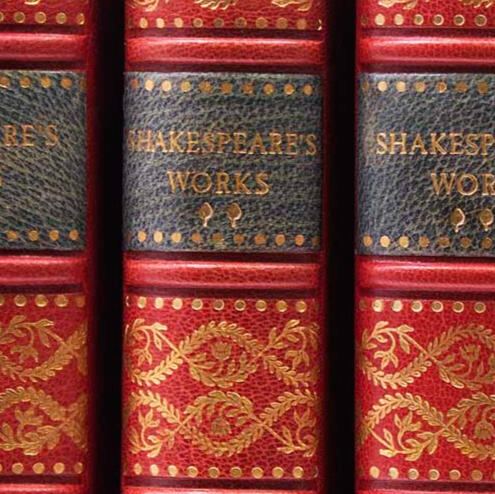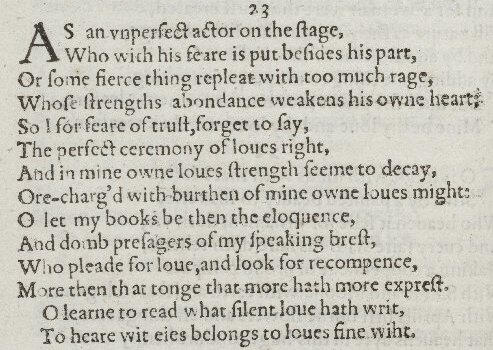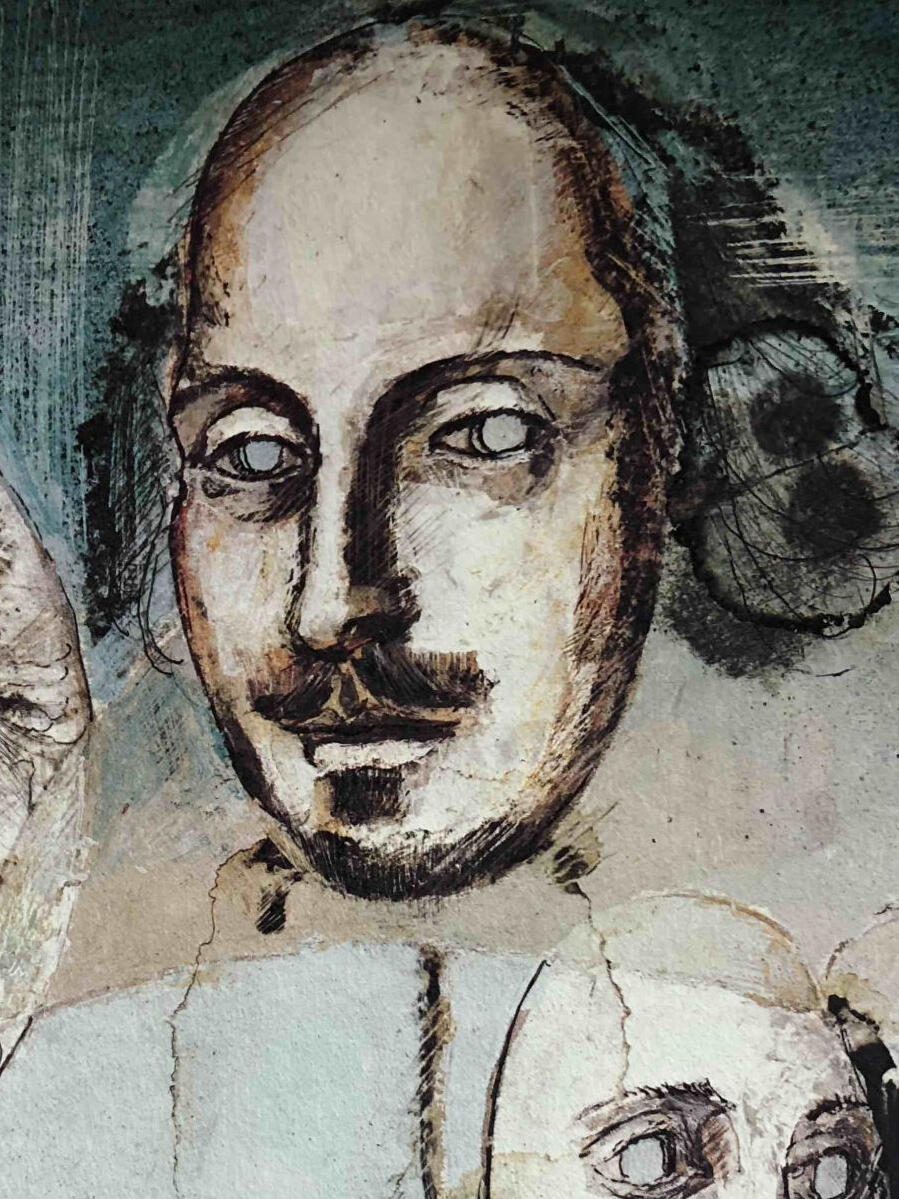
Sonnet 23
by William Shakespeare
As an unperfect actor on the stage
Who with his fear is put beside his part,
Or some fierce thing replete with too much rage,
Whose strength’s abundance weakens his own heart;
So I for fear of trust forget to say
The perfect ceremony of love’s rite,
And in mine own love’s strength seem to decay,
O’ercharged with burden of mine own love’s might.
O, let my books be then the eloquence
And dumb presagers of my speaking breast,
Who plead for love and look for recompense
More than that tongue that more hath more expressed.
O, learn to read what silent love hath writ.
To hear with eyes belongs to love’s fine wit.
Sonnet Introduction
In Shakespeare’s Sonnet 23, the speaker expresses his fear of conveying his love to the person that this sonnet is addressed to. Throughout the sonnet, the speaker repeats his feelings of fear and how his strong love for the individual addressed affects his inability to express his feelings for them. There are also various forms of poetic language including alliteration, enjambment, and simile which are very important in expressing the speaker's emotions and state of mind. The sonnet starts off with the speaker comparing himself to an “unperfect actor” who is incapable of playing his part mainly because of fear and a wild creature that is “replete with too much rage.” The speaker then continues to say that he is unable to express his emotion and produce a proper confession of love because of the mixture of love and fear that is building up inside of him. Finally, at the end of the sonnet, the speaker says that his only way of truly expressing his feelings of love is through writing because he is terrified of his speech failing him.


Sonnet Analysis
In Sonnet 23 Shakespeare uses comparisons such as similes and metaphors to express the speaker’s overwhelming feelings of love. In this sonnet, the speaker compares himself to an incapable actor who has trouble playing his part, and an angered creature who is “replete with too much rage.” The comparison of the speaker to an “unperfect actor” in the form of a simile represents the speaker’s fear of expressing their feelings of love, which is directly stated within the simile as the actor being compared to the speaker is described with “fear [that] is put beside his part.” On the other hand, the comparison between the speaker and a creature who is “replete with too much rage” is used to express a passionate and overwhelming love that the speaker has tried so hard to suppress. These two ideas are reliant on each other because since the speaker’s love is so strong he is afraid to express it, but as he contains his love inside of him it continues to grow and consume him like a wild creature. Additionally, the speaker’s common feeling of fear is brought back into the sonnet in line 5 where the speaker says “So I, for fear of trust, forget to say.” In this part of the sonnet, the speaker says that he does not trust himself enough to the point where he is scared to express “The perfect ceremony of love’s right,” which, perhaps, may be translated into a confession of love. This example further backs the main theme of the sonnet which is that the speaker’s overwhelming feelings of love create fear in revealing his important feelings of love.
Sonnet Recitation
Click on the image below to view the sonnet recitation video
